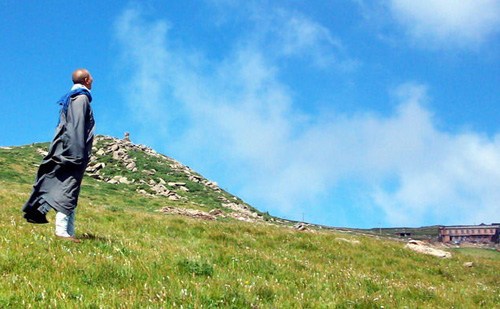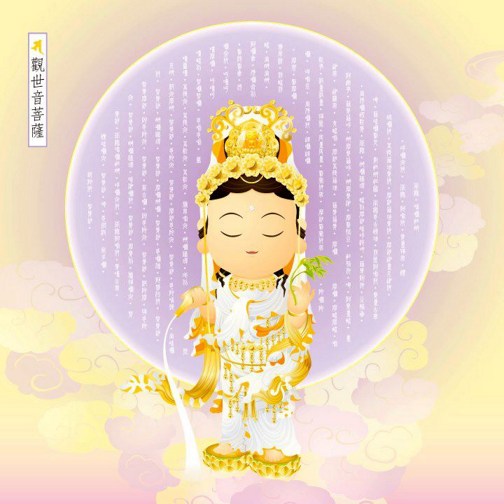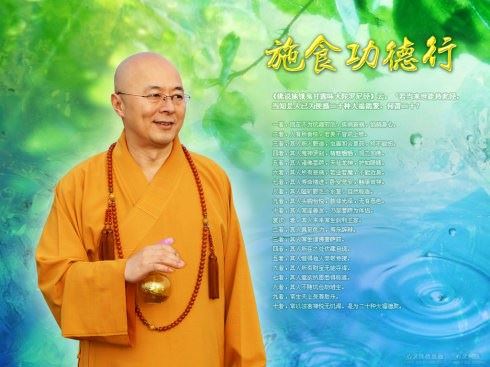Episode 33 Is Buddhism a world-weary or worldly religion?Teacher Zhengjun's instructions
2024-02-25 Study Buddhism and solve doubts
Dear Bodhisattvas:
Amitabha!
Today, I want to talk to you about learning Buddhism and resolving doubts in the Three Vehicles of Bodhi: Is Buddhism a world-weary or worldly religion?
The term Buddhism is because the one who preaches the Dharma is a Buddha, and we call it our teacher, so there is Buddhism;Later, because scholars or believers had their own preferences or views, they further divided the sects and sects. Of course, the word religion was sometimes analyzed and divided into sects and sects.For the relationship between them, you can refer to the explanations of Master Pingshi in the book "Zongtong and Shuotong".Actually, I personally think that there is a little bit of contradiction in the verbal words in this topic, that is, because Buddhism refers to a sect, which itself does not have the so-called worldly aversion or worldly problem.If you must talk about the issue of worldly disgust or outrage, of course, what should you refer to?Those who practice Buddhism.Because it is a sentient being, and then the Dharma meanings that he can understand or prove are different, the so-called worldly aversion or worldly problem arises.However, I have just explained that the word "Buddha" is because of the difference between the good roots, blessings and causes and conditions of sentient beings, so they often do not necessarily learn the true Buddhist teachings;Even if you learn the true Dharma, you may not be able to learn the righteous Dharma, let alone further prove Him.That's why there are all kinds of different situations.
So why ask, Buddhism is a world-weary or worldly religion?Because most people always think that learning Buddhism seems to be very gray, and this is a bit negative or world-weary.Because when he sees a true Buddhist, he must uphold various precepts and even stay away from the five desires with more or less points, he will feel that this is not the life that ordinary people want to live.Because what he asked for?Have fun in time!Then of course, this kind of worldly disgusting or outward view was born.But as mentioned earlier, disgust with the world and birth depends on the Buddhist teachings that everyone has learned, and even the differences in their past lives.Therefore, when discussing this issue, we must go forward to the environment in which everyone is taught, the motivation for learning Buddhism, and even the differences in the past between good roots and blessings.
Let’s take a look at the general life.Some people may say this: Oh!We have nothing to do!I don’t know why I was born in the human world;Since you are born in the human world, you have to have no choice but to follow the karma of the world.So you have to study hard since childhood. Of course, if possible, it is best to be at the top.After the vast majority of people have to face the problem of self-sufficiency after enjoying the good days of their parents’ support;So I work hard in the workplace, but I always feel that it seems like I can never finish this matter.Of course, what might happen in this process?Produce an object that pursues your preference.If both career and family matters can be smooth and complete, then this is really a pride of heaven that everyone envies.But in fact, there is no way to do what others want, and sometimes it will even fall from the clouds to the bottom all of a sudden.At this time, should we blame others or start the stove again?Seeing that I was not as good as I could not help but burst into tears and was discouraged, but life still has to continue.
No matter if someone is arrogant, he still cannot break through the biggest juncture of life, that is, death.Of course, it is best for relatives to surround themselves, but in many cases, it is the last moment alone.At this time, some people will inevitably think: Then what is the purpose of making so much money in our lives?Is it just to make more money and make more money?After thinking about it this way, it seems that in my life, I tied a bamboo pole behind me, and the bamboo pole extends to the front of my body;Then what was tied in front of this bamboo pole?Carrots.We can only look at the carrot, and we always want to move forward, but we will never be able to bite the carrot.
Of course, the description here is a general general example.Perhaps many people hope to lie leisurely like cats and dogs because they are under too much pressure;Perhaps some people hope to swim in the sky like flying hawks because of their ambitions;Perhaps some people have always been free to do their own things, so they hope to be like whales with huge strength and tremendous strength to wander in the sea;Maybe some people have always had the personality of being the only one, so they hope to gallop in the earth like that extremely powerful lion.No one wants to say that he will be born into the three evil realms and suffer, and he hopes that there will always be the pleasure of heaven.But the problem is that hope may not be achieved, so some people have motivated to learn Buddhism in this way.Of course, more people are still addicted to the sea of the five desires.
Some people will have a feeling of world-weariness because of difficulties in life;Some people have no choice but to learn Buddhism because of their strong recommendations from relatives and friends;Some people are happy when they read the preacher. They do not come to learn the Fa, but just to see the person very happy;Some people responded because they heard the Dharma spoken by the preacher.Because of the various differences in each person's mind and nature, coupled with the various differences in blessings and causes and conditions, even if this person has a deep or shallow fate with a good teacher, of course, there will be various different motivations for practicing Buddhism.
In Buddhism, it is sometimes said that sentient beings have three types of aptitude.
One is said to be the Śrāvaka nature. This type of person often has one or more parts of world-weariness, because for him, the world is more suffering than happiness.Although he also believes in a future life, he always said in fear that there will be so many sufferings in the future life that need to be faced again!When he has the cause and condition to come into contact with Buddhism, he always likes or responds to content such as suffering, emptiness, and selflessness, because what he wants is to leave the world quickly.
The second type is called Bodhisattva nature.This type of person may have one or more points to be helpful.Although he also knew that this world was bittersweet, he also believed that there was a future;But he always reveals a sense of compassion and has a certain understanding of helping others as the basis of happiness.When he came into contact with Buddhism, he was always not interested in content such as suffering, emptiness, and selflessness. Instead, he liked or recorded these causes in the sutras and treatises.He might want to say: The scriptures record those Bodhisattvas, how could he do those things?Or say: How can these Bodhisattvas have infinite futures?Then what am I doing?He would think like this.
The third type of people is called uncertainty.In other words, he is not biased against the above two situations, which is an undecided nature.Sometimes the nature of the Śrāvaka appears, and sometimes the nature of the Bodhisattva appears;Sometimes due to the influence of the external environment, sometimes by good teachers or friends, it is called not deciding which kind of nature it is.Because of the undecided relationship, we won’t talk about it here.
As mentioned earlier, a person who comes to study Buddhism because of suffering in life has one or more parts of the world-weariness.Because he heard that Buddhism can make people free from suffering and gain happiness. Although he also wants to gain happiness, what he cares most about is the item of getting rid of suffering;Therefore, since he practiced Buddhism, although he was able to help others as much as possible, he was always thinking about how to get rid of suffering in his heart;After he further understood the true meaning of getting rid of suffering, he finally made up his mind to work hard to practice the Dharma.By the way, Buddhism can be practiced, not just used as knowledge for analysis and research.Because this type of people finally personally realized the path to liberation in Buddhism and achieved the goal of leaving the world.From this point of view, it is said that he has a mentality of being tired of the world or being born, and he has a mentality of being a shravaka.
So why is it said that the Śrāvaka Dharma can enable scholars to personally realize the Dharma of the world?Let’s take a look at what Volume 16 of the "Zengyi Agama Sutra" says: [The World Honored One tells: What?Bhikkhu!Are you trying to get rid of life and death and seek the way of inaction?However, the body of the five yin cannot be protected.The monks replied: That’s true!World Honored One!As the World Honored One teaches, the reason why our clans and surnames become monks and learn Taoism is to seek the way of inaction and destroy the five yin bodies, so as to learn Taoism.】(Volume 16 of "The Sutra of Zeng Yi Agama")
This part of Buddhism is an analysis of a small part from the overall Buddhism, which is to cure the scholars who are narrow in mind and afraid of life and death, hoping to get rid of life and death as soon as possible, and do not care much about where other sentient beings should go.Then remind them that doing the Tao is to be free from life and death and seeking the Tao of inaction.Therefore, it is taught that they are the method of wanting to escape from life and death and seeking the way of inaction, which is to destroy the five aggregates;Only by completely eliminating one's five aggregates body can one truly practice the Tao and truly escape from life and death.But before this, you must fully understand what the five yin body is and what it has to do with yourself, so that you can further fulfill the subsequent five yin body to destroy them;Because I know that the five yin bodies are me, I am a false Dharma.
But when we talk about this, we will inevitably mention some so-called Buddhist scholars, because we do not know that the method to escape from life and death and seek the path of inaction is to destroy the five yin bodies, and we even do not know the connotation of the five yin bodies at all;So what are you asking for in the process of studying Buddhism and spreading the Dharma?Everyone is looking for all kinds of firsts.What's the first?The number of relatives should be the first, the name should be the first, and the place where they live should be the most comfortable, so that they can practice well, and even say that the area that is promoted should be the largest;Where did the result fall?They all fall into the lower level of the five yin bodies.How can it be possible to escape from life and death in this way?Not only is there no way to prove the Dharma of transcendence, but there is not even a bit of world-weariness sentiment. This type of scholar cannot be called world-weariness, or he has a world-wear state of mind.
What's going on with Bodhisattva?The first volume of the six hundred volumes of the "Mahaprajna Paramita Sutra" says: [The Buddha told Shariputra: The Bodhisattva Mahasattva first made his mind to practice the six paramita, and even sat in the temple, where he always made blessing fields for the Śrāvakas and Pratyekabuddhas.Why?Because of the causes and causes of Bodhisattva Mahasattva, all good deeds in the world are born.What is a good deed?The so-called ten virtues, five precepts, eight parts of the accomplishment of veterinary veterinary, four meditations, four immeasurable minds, four formless concentration, four mindfulness, four right and right diligence, four wishfulness, five senses, five powers, seven awakening parts, and eight holy paths all appear in the world;Due to the causes and conditions of Bodhisattvas, the six paramitas, the eighteen emptiness, the ten powers of Buddha, the four fearlessness, the four unobstructed wisdom, the eighteen uncommon dharmas, great compassion, and all kinds of wisdom appear in the world;Due to the reasons of Bodhisattvas, the great surname of Kharia, the great surname of Brahmin, the great scholars, the four heavenly kings, and even the heavens with neither thoughts nor thoughts all appear in the world;Due to the causes and conditions of Bodhisattvas, Sotapanna, Stagaha, Anagas, Arhats, Pratyekabuddhas, and Buddhas all appear in the world.】(Volume 1 of "Mahaprajna Paramita")
Because Bodhisattvas have had the habit of helping others since the past, and when they were destined to come into contact with Buddhism, they especially like the records in the sutras and treatises about how to benefit all living beings;After countless worlds of practice and practice, I can finally become the kind of Bodhisattva mentioned in the sutras and treatises.In the first volume of the Mahaprajna Paramita Sutra, this says that the Bodhisattva starts his mind, that is, from the first time he personally realizes the reality of the Dharma Realm, after many kalpas and ten thousand practices, he can finally sit in the temple to achieve Buddhahood. In this process, he often creates blessing fields for all the Śrāvakas and Pratyekabuddhas.Why can Bodhisattvas do this?Because after Bodhisattvas personally realize the true reality of the Dharma Realm, they often make a vow to be born. Even if they have the ability to personally realize the fruit of liberation, they also vow to return to this world for generations to benefit sentient beings with true Buddhism.Therefore, these ten virtues, five precepts, eight parts of the accomplishment and fasting, and even the various good deeds of great compassion, all kinds of wisdom, are proven by His life and life, and are all stored in His own eight consciousness fields. When the cause and condition of the future life is ripe, they can be used to benefit sentient beings.So what is fate?Observe the aptitude of sentient beings, think about the contemporary environment, and teach good deeds to humans and heavenly beings if you are not familiar with the conditions;What should I teach if I am more familiar with my fate?Further teach other methods.However, the ultimate goal is to accept sentient beings to realize the path of Buddhahood and Bodhi, and even become Buddhas.Therefore, from the good deeds of humans and heavenly beings, the path to liberation, and even the path to Buddhas and Bodhi, it is said that because of the causes and conditions of Buddhas and Bodhisattvas, there are Sotapanna, Stahan, Anagas, Arhats, Pratyekabuddhas, and Buddhas in this world.
However, why do you say that the Shravakas and Pratyekabuddhas cannot accept sentient beings of the same nature as you, but must be accepted by Bodhisattvas?This is because the purpose of practicing Buddhism is to personally realize liberation. Once you enter the Nirvana of Non-remnance, the five bodies of the five aggregates will be destroyed, and there are no Arhats or Pratyekabuddhas appearing in this world;Even the most lazy Śrāvaka, who returns to humans and heavenly beings for seven times, must also attain the Nirvana without remainder.Only Bodhisattvas can vow to enter the world for generations to benefit sentient beings;Only Bodhisattvas can have the ability to achieve or even exceed the realization of Arhats and Pratyekabuddhas, and can they have the ability to accept all kinds of sentient beings.
Therefore, for Bodhisattvas, this statement of disgust with the world and transcendence is inappropriate.The Dharma is convenient for the Three Vehicles of Bodhi. Strictly speaking, the good Dharmas of human and heavenly beings cannot be said to be Buddhism, but they are brought into the One Buddha Vehicle.If the Bodhisattva is willing to make the vow of endless vows to save sentient beings in the causal realm, then just this one thing will make the Bodhisattva have no right to be tired of the world.But when he sincerely said that he was willing to come to the world for life and benefit sentient beings;Because he personally realized this Tathagatagarbha, which was originally selfless, after he changed according to the relationships and relied on every life, he also had the merit of liberation. That is to say, while entering the world, he also had the merit of liberation from the world;At this time, I would like to ask the examiner: So, should you say that this situation is to be admitted to the world or be born?
Therefore, if we must talk about worldly disgust and worldly birth in Buddhism, it should be said that scholars have understood that the greed of the five desires is the root of the suffering of life and death, so they want to leave the world with all kinds of sufferings.However, on this basis, we further realized the Tathagata of our mind, and further vowed to return to this world for generations, use true Buddhism to benefit sentient beings, and protect the good deeds of the Shravakas, Pratyekabuddhas, and human and heavenly beings.Even because of this, there will always be Buddhas in the future to save the people.Then in this situation, of course you cannot say that Buddhism is a world-weary or worldly religion.
OK, that’s all for today.
Amitabha!
Related Readings
![【Buddhist knowledge] Is it necessary to sit for a long time when meditating?](https://img.sushijiameng.com/pic/images/img/1_202205012212499f323.jpeg) 【Buddhist knowledge] Is it necessary to sit for a long time when meditating?
【Buddhist knowledge] Is it necessary to sit for a long time when meditating?
 Master Weijue: The monk Shang Weixiajue was given the precepts and the great monk Shang Weixiajue at the 97th anniversary of the lay Bodhisattva precepts
Master Weijue: The monk Shang Weixiajue was given the precepts and the great monk Shang Weixiajue at the 97th anniversary of the lay Bodhisattva precepts
 Master Weijue: The monk who received the precepts of the lay Bodhisattva precepts in the 97th year
Master Weijue: The monk who received the precepts of the lay Bodhisattva precepts in the 97th year
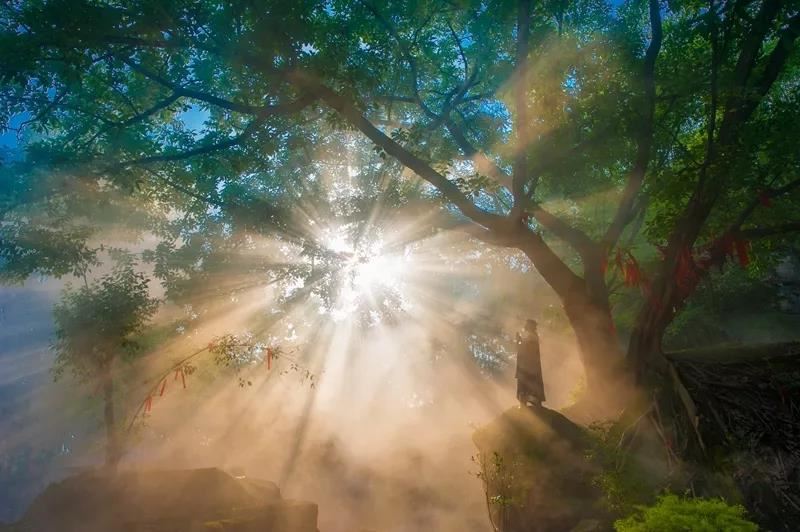 Master Weijue: Teachings of the 94th-year Abbot of the Seventh Perfect Day
Master Weijue: Teachings of the 94th-year Abbot of the Seventh Perfect Day
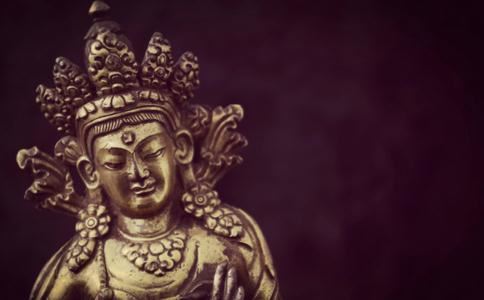 Master Weijue: The 97th New Year's New Year's Reunion Teachings
Master Weijue: The 97th New Year's New Year's Reunion Teachings
 No wonder Sun Wukong has 84,000 hairs. Who do you think it has to do with?From Buddhist allusions
No wonder Sun Wukong has 84,000 hairs. Who do you think it has to do with?From Buddhist allusions
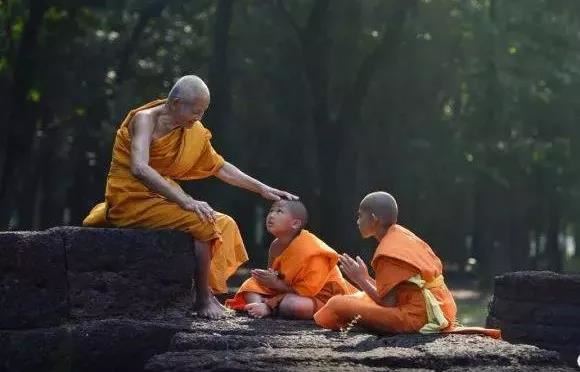 Master Weijue: Buddhist view of financial management
Master Weijue: Buddhist view of financial management
 Master Chongci: Is it difficult for women to practice more than men?Buddhism's interpretation of women
Master Chongci: Is it difficult for women to practice more than men?Buddhism's interpretation of women
 Master Chongci replied: Are there any statements about "doomsday theory" and "destruction theory" among the Buddhist sayings about "disaster"?
Master Chongci replied: Are there any statements about "doomsday theory" and "destruction theory" among the Buddhist sayings about "disaster"?
 Master Chongci: Why is Buddhism called Buddhism _The standard for becoming a Buddha
Master Chongci: Why is Buddhism called Buddhism _The standard for becoming a Buddha
 Master Mingxian: There is no need to merge Buddhism and science
Master Mingxian: There is no need to merge Buddhism and science
 Buddhist concept of cause and effect
Buddhist concept of cause and effect
 Master Daji Nishi: Death, Bardo body, seven, and enlightenment (How to teach the death of relatives and friends )
Master Daji Nishi: Death, Bardo body, seven, and enlightenment (How to teach the death of relatives and friends )
 100 teachings of Master Xuanhua
100 teachings of Master Xuanhua
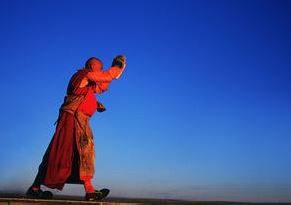 The Buddhist holy land of Sizhou Temple is worth seeing
The Buddhist holy land of Sizhou Temple is worth seeing
 Huang Yi met with Buddhist monks at home and abroad
Huang Yi met with Buddhist monks at home and abroad
 Master Foyuan: The second day of the seventh day of Zen Master Foyuan’s Zen teachings
Master Foyuan: The second day of the seventh day of Zen Master Foyuan’s Zen teachings
 Master Cifa: Twelve Great Vows of Medicine Buddha: 1. Cherish the holy cause and holy fate that you should remember to achieve.
Master Cifa: Twelve Great Vows of Medicine Buddha: 1. Cherish the holy cause and holy fate that you should remember to achieve.
 A brief explanation of Nagarjuna's Bodhisattva's remarks on staying away from lust
A brief explanation of Nagarjuna's Bodhisattva's remarks on staying away from lust
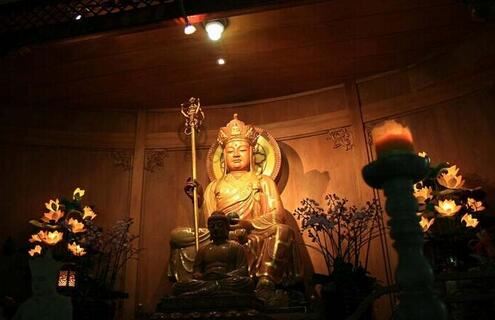 Huang Bolin: Master Yin’s instructions on sexual misconduct
Huang Bolin: Master Yin’s instructions on sexual misconduct
 Master Wei Chuan: Teachings on the Four Mindfulness Meditations 11: "Movement" of enlightenment and enlightenment
Master Wei Chuan: Teachings on the Four Mindfulness Meditations 11: "Movement" of enlightenment and enlightenment
 Those words from Buddhism, Chinese gives Buddhism the highest "privileges"
Those words from Buddhism, Chinese gives Buddhism the highest "privileges"
 The first academic seminar on "Jizu Mountain Kashyapa Sect Style and Mountain Forest Buddhism" opened
The first academic seminar on "Jizu Mountain Kashyapa Sect Style and Mountain Forest Buddhism" opened
 Master Zong Shun: Religion’s ecological wisdom and scientific concept of development
Master Zong Shun: Religion’s ecological wisdom and scientific concept of development
 Master Jingbo: The blessings of Buddhism cannot only know how to "not leave" but ignore "independence"
Master Jingbo: The blessings of Buddhism cannot only know how to "not leave" but ignore "independence"
 The Buddhist saints gather the causes and conditions of 23. Encourage good and abandon evil and sage virtue to sing incense
The Buddhist saints gather the causes and conditions of 23. Encourage good and abandon evil and sage virtue to sing incense
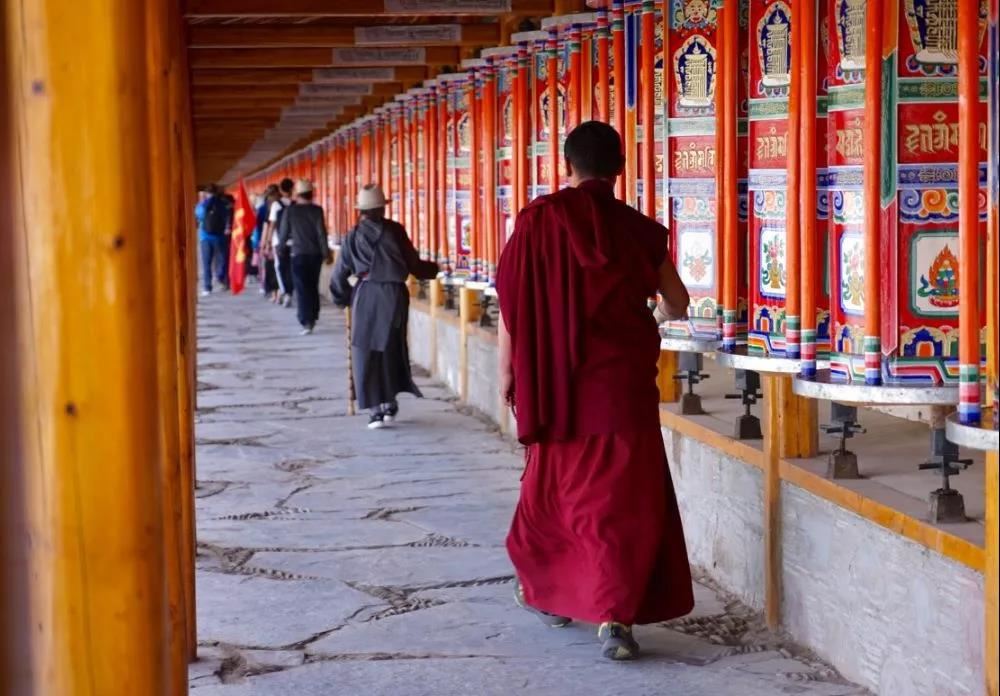 Master Zhihai: Practice of Human Buddhism
Master Zhihai: Practice of Human Buddhism
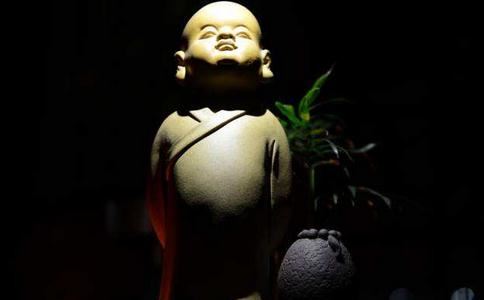 The Buddhist saints gather the causes and conditions 6. The sage is like a mountain and the saints have no words
The Buddhist saints gather the causes and conditions 6. The sage is like a mountain and the saints have no words
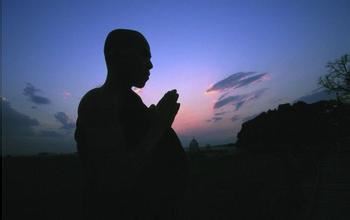 Khenpo Dazhen: Why don’t you believe in cause and effect? It’s because we don’t have wisdom in 2018 Guanyin Dharma Assembly (II)
Khenpo Dazhen: Why don’t you believe in cause and effect? It’s because we don’t have wisdom in 2018 Guanyin Dharma Assembly (II)
 The Buddhist saints’ causes and conditions are gathered in fifteen. The fault of words is the karma of dog monks
The Buddhist saints’ causes and conditions are gathered in fifteen. The fault of words is the karma of dog monks
 Master Xuyun: Prerequisites for the Taoist practice of deep belief in cause and effect (10) Zen Hall teachings 1
Master Xuyun: Prerequisites for the Taoist practice of deep belief in cause and effect (10) Zen Hall teachings 1
 Old Monk Xuyun - Master Xuanhua's teachings
Old Monk Xuyun - Master Xuanhua's teachings
 Master Dazhao: Introduction to Beyond Death——The Thought Background of Buddhist Hospice
Master Dazhao: Introduction to Beyond Death——The Thought Background of Buddhist Hospice
 “Teacher Niu’s agarwood” Why is it the most affordable price?
“Teacher Niu’s agarwood” Why is it the most affordable price?
 Master Jingyin: Why does Buddhism have to use candles to represent light?
Master Jingyin: Why does Buddhism have to use candles to represent light?
 Master Dazhao: Beyond Death Chapter 1, Section 3, Buddhist Reincarnation
Master Dazhao: Beyond Death Chapter 1, Section 3, Buddhist Reincarnation
 Master Dazhao: Transcending Death Chapter One Major Events of Life and Death - Life and Death are the themes of the world Chapter One Buddhist View of Life and Death
Master Dazhao: Transcending Death Chapter One Major Events of Life and Death - Life and Death are the themes of the world Chapter One Buddhist View of Life and Death
 Teacher Gao Mingdao: A demand for quality and integrity
Teacher Gao Mingdao: A demand for quality and integrity
 Teacher Gao Mingdao: Human beings cross the sea as a boat
Teacher Gao Mingdao: Human beings cross the sea as a boat
 The most touching story of Buddhism: Ksitigarbha Bodhisattva wearing a straw hat
The most touching story of Buddhism: Ksitigarbha Bodhisattva wearing a straw hat
 Master Nengxu: What is Buddhism _What is Buddhism _What is Buddhism _What is learning Buddhism
Master Nengxu: What is Buddhism _What is Buddhism _What is Buddhism _What is learning Buddhism
 Master Yuexi: Zen Master Yuexi replied: What kind of classics do you use a thought of ignorance to break the beginningless ignorance?What teachings did the ancestors teach?
Master Yuexi: Zen Master Yuexi replied: What kind of classics do you use a thought of ignorance to break the beginningless ignorance?What teachings did the ancestors teach?
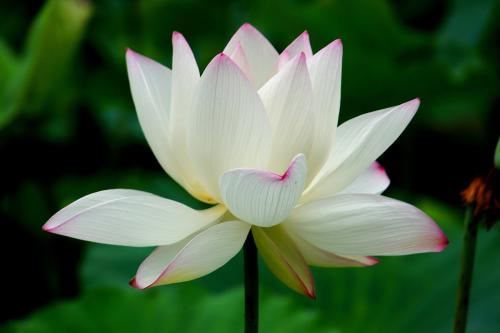 Teacher Gao Mingdao: The New Year's Tree Bodhisattva Journey
Teacher Gao Mingdao: The New Year's Tree Bodhisattva Journey
 The first Buddhist scripture translator in Xinjiang - Kumarashi, the ancestor of the eight Buddhist sects
The first Buddhist scripture translator in Xinjiang - Kumarashi, the ancestor of the eight Buddhist sects
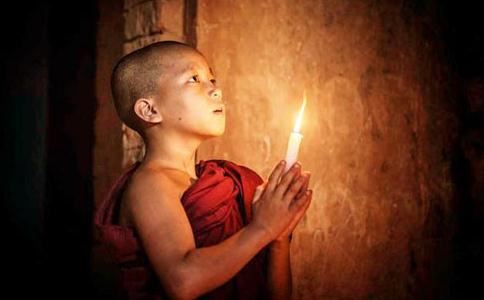 Master Shoupei: Buddhistism and the significance of conducting Buddhism
Master Shoupei: Buddhistism and the significance of conducting Buddhism
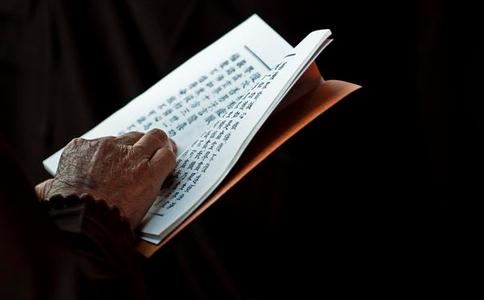 Elder Damonanda: Religion in the Age of Science
Elder Damonanda: Religion in the Age of Science
 Elder Damonanda: Buddhism and politics
Elder Damonanda: Buddhism and politics
 Master Cihang: The complete collection of Master Cihang's Bodhicitta Shadow (one )Chapter 16 of the Release of Questions, Buddhism and People's Governance
Master Cihang: The complete collection of Master Cihang's Bodhicitta Shadow (one )Chapter 16 of the Release of Questions, Buddhism and People's Governance
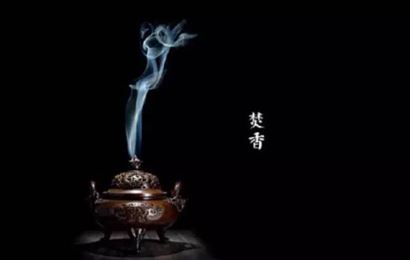 What is the meaning of the Eighteen-Subs Bracelet that was popular in the Qing Palace?What are the eighteen realms of Buddhism?
What is the meaning of the Eighteen-Subs Bracelet that was popular in the Qing Palace?What are the eighteen realms of Buddhism?
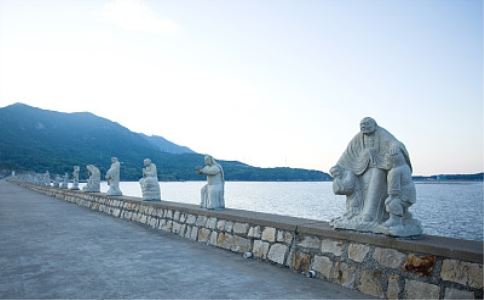 Master Zhengguo: Message from Buddhism on earth
Master Zhengguo: Message from Buddhism on earth
 Master Cizhou: Preface to Master Yuanying’s Master Cizhou’s Teachings
Master Cizhou: Preface to Master Yuanying’s Master Cizhou’s Teachings
 The Buddha's teaching: The King of Longevity practices endurance and humiliation
The Buddha's teaching: The King of Longevity practices endurance and humiliation
 The status of agarwood in religion
The status of agarwood in religion
 Master Xuanhua: Instructions on Yin Spirit and Abortion
Master Xuanhua: Instructions on Yin Spirit and Abortion
 Master Da'an's lecture at the Jiangxi Miscellaneous Literature Society Elite Visit
Master Da'an's lecture at the Jiangxi Miscellaneous Literature Society Elite Visit
 Master Ti Guang: Master Ti Guang’s eleven teachings
Master Ti Guang: Master Ti Guang’s eleven teachings
 Master Ti Guang: If you have infection and love, then it is not a law of transcendence.
Master Ti Guang: If you have infection and love, then it is not a law of transcendence.
 Master Ti Guang: Master Ti Guang’s Twenty-Three Explanations
Master Ti Guang: Master Ti Guang’s Twenty-Three Explanations
 Master Weixian: The difference between religion and feudal superstition
Master Weixian: The difference between religion and feudal superstition
 Master Weixian: Implement the Regulations on Religious Affairs to build a socialist harmonious society
Master Weixian: Implement the Regulations on Religious Affairs to build a socialist harmonious society
 Master Benhuan: The teachings of Elder Benhuan’s scripture hall
Master Benhuan: The teachings of Elder Benhuan’s scripture hall
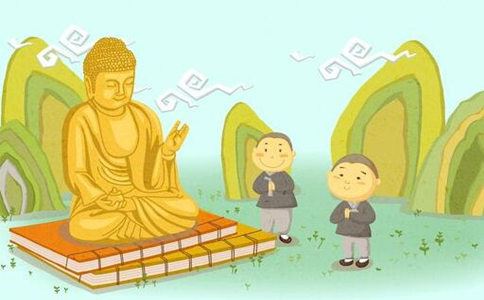 Master Benhuan: 2002 Shenzhen Xinde Library's announcement
Master Benhuan: 2002 Shenzhen Xinde Library's announcement
 Master Da'an: Precepts are the lifespan of Buddhism
Master Da'an: Precepts are the lifespan of Buddhism
 The first-class scenic spot in Yangzhou, integrating Buddhist temples, cultural relics and historical sites, and landscape gardens
The first-class scenic spot in Yangzhou, integrating Buddhist temples, cultural relics and historical sites, and landscape gardens
 Master Miaolian: Buddhist Outlook on Life Three: Don’t kill what you don’t want
Master Miaolian: Buddhist Outlook on Life Three: Don’t kill what you don’t want
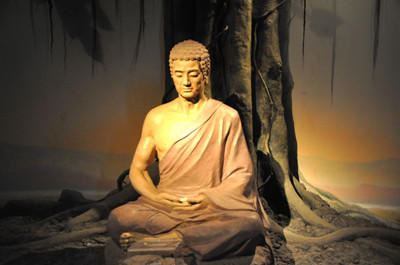 Master Miaolian: Questions and Answers 1 Open the door of Ruyi
Master Miaolian: Questions and Answers 1 Open the door of Ruyi
 Master Miaolian: Teachings and Questions 3 Inspiring Prajna Wisdom
Master Miaolian: Teachings and Questions 3 Inspiring Prajna Wisdom
 Master Miaolian: Buddhist Outlook on Life Eight, Faithfulness and Do Not Practice Good Words
Master Miaolian: Buddhist Outlook on Life Eight, Faithfulness and Do Not Practice Good Words
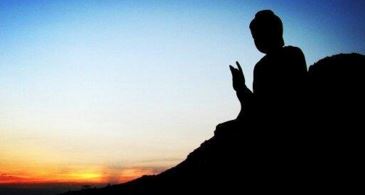 Master Miaolian: Buddhist Outlook on Life Six: Eliminate desires and do not lust and lead to life and death
Master Miaolian: Buddhist Outlook on Life Six: Eliminate desires and do not lust and lead to life and death
 Master Jinghui: The Door Without a Door - The Meditation Hall Demonstration
Master Jinghui: The Door Without a Door - The Meditation Hall Demonstration
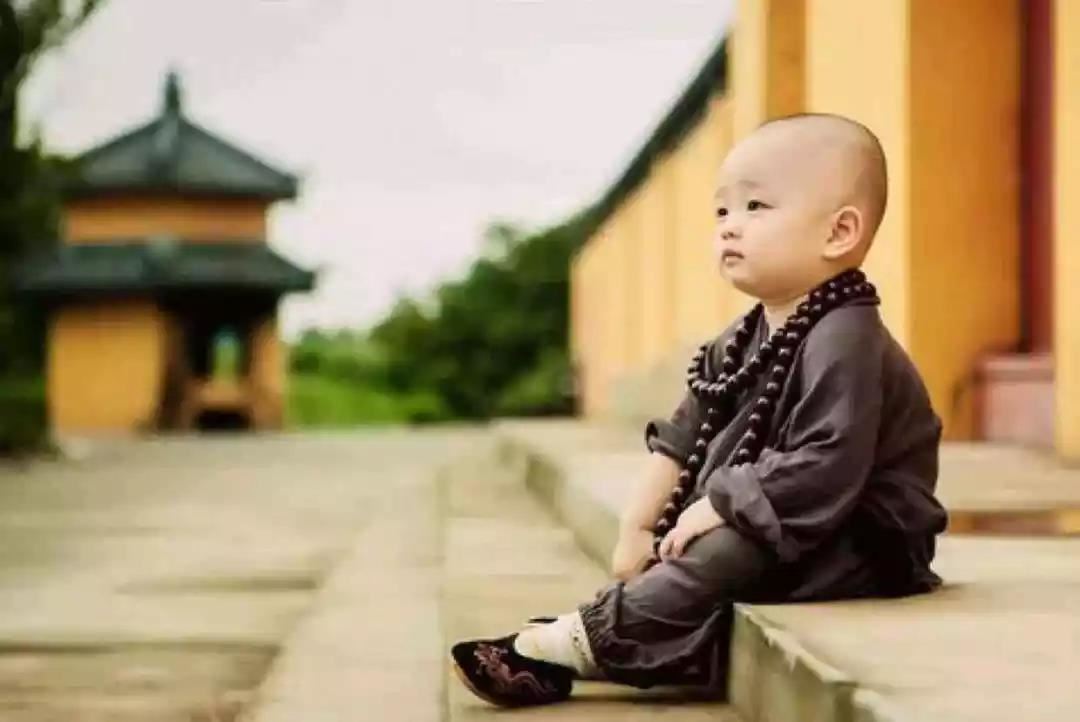 Master Shengyan: How to understand Buddhism?
Master Shengyan: How to understand Buddhism?
 Master Jinghui: What is the fundamental problem of Buddhist heritage?
Master Jinghui: What is the fundamental problem of Buddhist heritage?
 The teachings of the Great Treasure Dharma King of the Seventeenth Age of the Medicine Buddha’s Initiation Conference
The teachings of the Great Treasure Dharma King of the Seventeenth Age of the Medicine Buddha’s Initiation Conference
 Khenpo Dazhen: What should I do if someone wants to do business and make money for the sake of the Buddhist cause but has no chance?
Khenpo Dazhen: What should I do if someone wants to do business and make money for the sake of the Buddhist cause but has no chance?
 Master Jiqun: A Buddhist moral concept based on human nature
Master Jiqun: A Buddhist moral concept based on human nature
 What does "Dharma" mean in Buddhism?
What does "Dharma" mean in Buddhism?
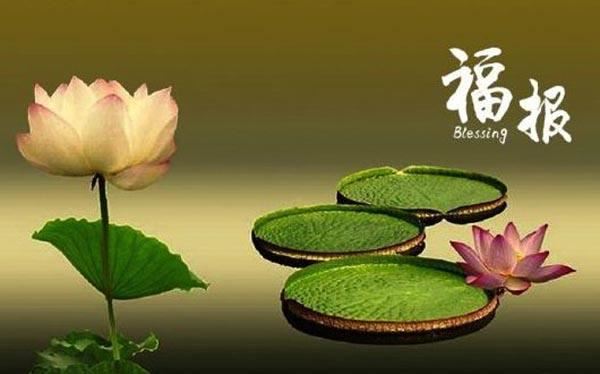 Master Xuecheng: Buddhism does not have the saying of Buddha in natal, and Buddha statues cannot be worn casually
Master Xuecheng: Buddhism does not have the saying of Buddha in natal, and Buddha statues cannot be worn casually
 Master Chuanxi: The Lotus Sutra, the Universal Door Chapter of Guanyin Bodhisattva (two )
Master Chuanxi: The Lotus Sutra, the Universal Door Chapter of Guanyin Bodhisattva (two )
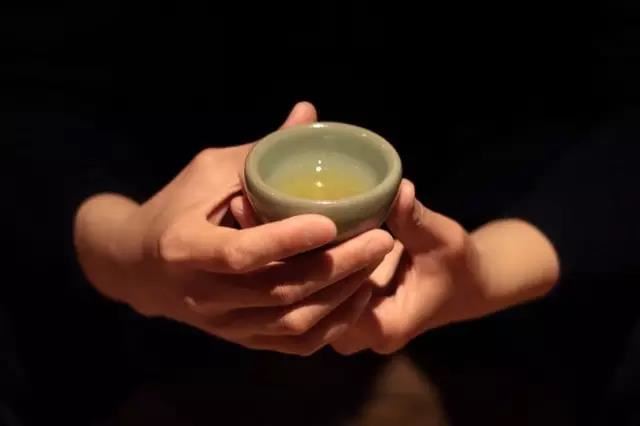 Master Chuanxi: The Lotus Sutra, the Universal Door Chapter of Guanyin Bodhisattva (Four )
Master Chuanxi: The Lotus Sutra, the Universal Door Chapter of Guanyin Bodhisattva (Four )
 19 rituals in Buddhist temples
19 rituals in Buddhist temples
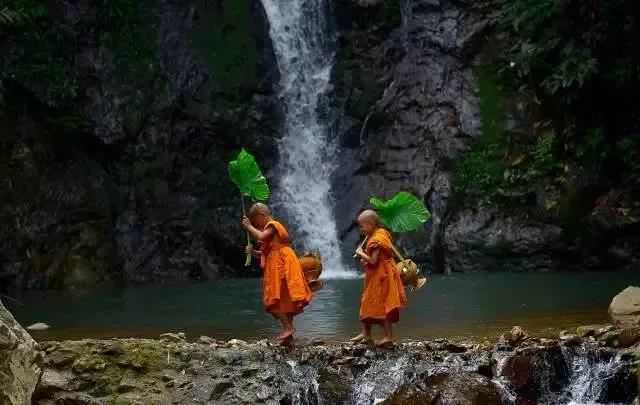 Master Zhenchan: Buddhist filial piety——The Ullambana Sutra
Master Zhenchan: Buddhist filial piety——The Ullambana Sutra
 The story of Amitabha Buddha in Buddhism
The story of Amitabha Buddha in Buddhism
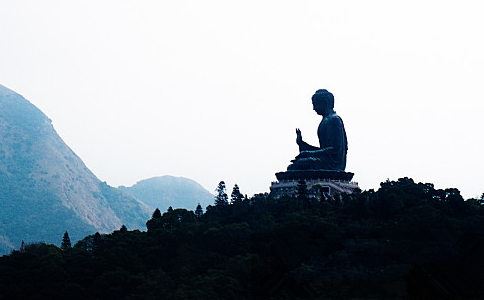 Master Zhen Chan: Zen thought is the Buddhist thought on earth
Master Zhen Chan: Zen thought is the Buddhist thought on earth
 Master Zhenchan: Demonstration of the Christmas Conference of Ksitigarbha Bodhisattva
Master Zhenchan: Demonstration of the Christmas Conference of Ksitigarbha Bodhisattva
 Master Yinshun: Modern Buddhism should not hide in the mountains and forests
Master Yinshun: Modern Buddhism should not hide in the mountains and forests
 Monk Guangqin: Essential instructions on chanting Buddha's name and practicing
Monk Guangqin: Essential instructions on chanting Buddha's name and practicing
 Master Yinshun: Promoting human Buddhism should focus on youth
Master Yinshun: Promoting human Buddhism should focus on youth
Which ten Buddhas in the ten directions include in Buddhism?
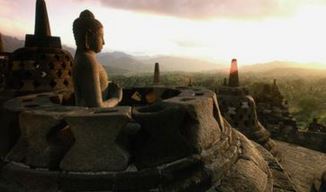 Questions 84 of Master Yin Guang’s Pure Land Teachings (7)
Questions 84 of Master Yin Guang’s Pure Land Teachings (7)
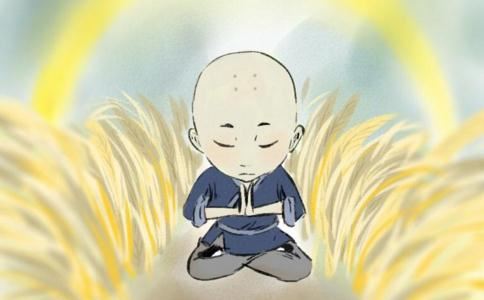 Buddhist theory of cause and effect
Buddhist theory of cause and effect
 How do Buddhism think that destiny must be sometimes there, and don’t force this sentence when destiny is never there?
How do Buddhism think that destiny must be sometimes there, and don’t force this sentence when destiny is never there?
 Master Yin Guang: Mrs. Huang Hanzhi died of illness, and the teacher taught the rules of chanting
Master Yin Guang: Mrs. Huang Hanzhi died of illness, and the teacher taught the rules of chanting
Complete collection of Buddhist scriptures
Article Category
Share on WeChat
Scan the QR code to share on WeChat or Moments

















